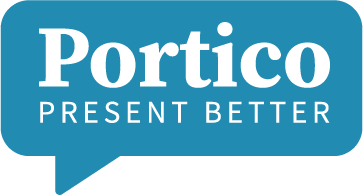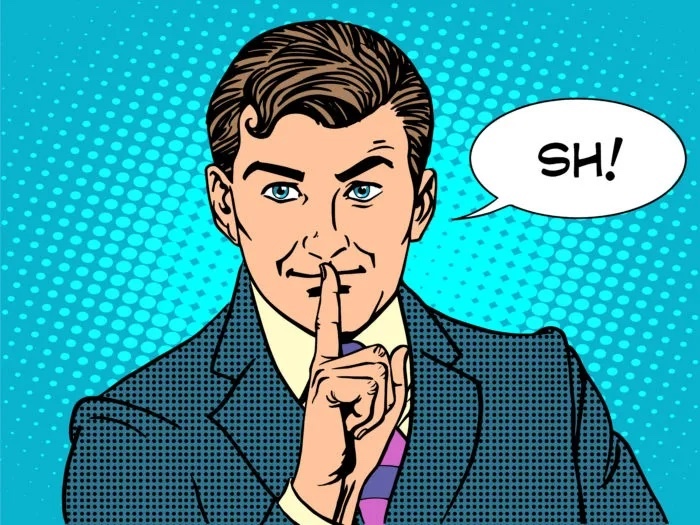A senior executive was dismayed when she saw the results of a company-wide survey on communications. Employees felt uninformed about the strategy and how their work fit into the bigger picture.
“But we are communicating. They’re just not listening!”
The reaction is both humorous and unfortunately, widely shared. If they’re not listening, guess whose fault that is?
When it comes to presentations and meetings, we usually focus our efforts on what we want to convey. And we might think about the best channel or tactic. Yet how much attention to do we give to the practice of listening? Do we enter meetings with a genuine interest in learning something new, or to share our opinion? What are we missing out on when we close these opportunities to collaborate?
WHY DON’T WE LISTEN?
We’re wired to interrupt. Humans formulate answers before the other person finishes speaking. Psycholinguistic researchers Mark Dingemanse and N.J. Enfield study the infrastructure of human languages shared across cultures. The rapid turnaround time between when one person stops talking and the other begins “suggests people must gear up to speak – mentally planning what they will say next – while their partner is still talking.”
We’re stressed. When it comes to high-pressure meetings with the Board of Directors, pitching potential investors or interviewing for a job, anxiety can prevent thoughtful listening. We’re so aware of the stakes involved that we tend to see outcomes of any interaction as binary. We don’t see value in the actual exchange of ideas. In fact, we might want to avoid questions because we see questions as threats. Remember that these meetings are meant to provide an exchange of information; they’re not an academic test.
We’re distracted. Given that we speak about 120 words per minute while our audience clocks 4000 thoughts per minute, we’re poised to compete for head space.
HOW CAN WE GET OTHERS TO LISTEN?
At the start, be clear about what you’re going to tell them and what you’d like them to get out of your meeting. You want to get it out fast, meaning that in the first two minutes of your presentation, you must let the audience know how much they should pay attention. This gives your colleagues a framework to process all of the brilliant insight that you’re about to share. It shows you’ve been thoughtful about how to make the most use of your time together.
Punctuate with pauses and prompts. Not all words hold equal weight in a presentation. Yet many of us run through remarks on an even tempo, lulling our colleagues into a bit of a trance. Prompt the parts that you really want them to pay attention to, “This is the question our customers are most concerned about. . . .” Slow down as you say these phrases and pause afterwards before launching into your next idea or recommendation.
Go short. If your colleagues view you as a succinct, insightful speaker, they’ll reward you. Leave space for them to ask questions and help direct the discussion to go into more technical detail or if they need more context. Think of this as part of your personal branding. Remember those EF Hutton commercials? They won’t allow themselves to tune out and become distracted by their to-do list or standings in fantasy football.
HOW CAN WE BECOME BETTER LISTENERS?
Be mindful of how much you’re speaking in during a conversation or staff meeting. Develop an awareness of how much you’re participating (or not) and ask a trusted colleague if they notice a pattern. If there’s a disconnect between how much you think you’re speaking and how much others say you are, decide how you’re going to adjust. What questions can you ask of colleagues? Do you want to wait until you’ve heard from others to offer your input? If you discover that you interrupt at a frequency that cuts others off, then:
Find a way to stop yourself from interrupting. Some place a finger on their lips when they’re tempted to jump in as a reminder. Others jot notes or try to focus on the speaker more intently.
When the other person has stopped speaking, ask them a follow-up question. The most salient insights and benefits of collaboration rarely occur in our initial exchanges. In the course of observing business meetings, more often than not a speaker moves the discussion back to themselves or a new topic without probing or interviewing the person to extract more on their perspective. There are millions of missed opportunities to genuinely learn from our peers.
Listen to the listening experts. For lists of tips on how to enhance your listening skills, even on highly charged subjects: From the world of TED, radio host and producer Celeste Headlee gives us ten memorable ways to have a better conversation and Julian Treasure offers five ways to become a better listener. From the New York Times, take 19 steps to have a constructive political discussion with someone who voted for a different candidate.
As the TED speakers and journalists demonstrate, our personal interactions benefit by improving our listening skills. Our colleagues, friends and families often tell us much more in their silence. If we’re not truly listening, we miss out.
Ask another question. Then listen.
Listening on a grand scale. Do you have a major company meeting or organizational off-site this year? Are you putting a lot of resources into travel and logistics while leaving the content and quality of listening up to chance? Lower that risk and get a better return on investment for your meetings. Ask about our Meeting Design + Speaker Prep offering.



